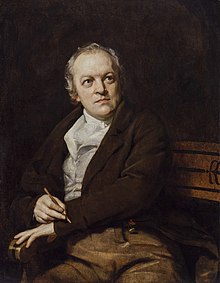Widely renowned for his profound and otherworldly poetry, William Blake, whose birthday we remember this month, wrote some of the most memorable verses in the English language. Millions of seekers, spiritual and otherwise, have used his lines (in his "Auguries of Innocence), "To see a World in a Grain of Sand, And a Heaven in a Wild Flower Hold Infinity in the palm of your hand And Eternity in an hour" as they meditated on the meaning of their lives. Millions more have employed the metaphysical fractures running through Blake's "Marriage of Heaven and Hell" to develop their vision for understanding a material reality which at the same time seems permeated with ethereal activity and semblance. Blake's words capture the essence of the modern quest for wholeness and meaning: even though life seems mysterious, even futile, we human beings still want to believe that it matters. So what do we do?

Particularly if, as modernity avers, there is no God. It is the perennial dilemma of being a human being. How do we balance what we want to think with what we feel we must believe?
Blake pushed creativity to its limits, mining life for all he could. He took hold of existence in full. He understood very well that if there really is no God, how are we to understand the metaphysical strivings of the human being?
Maybe there's more than we think.
No comments:
Post a Comment